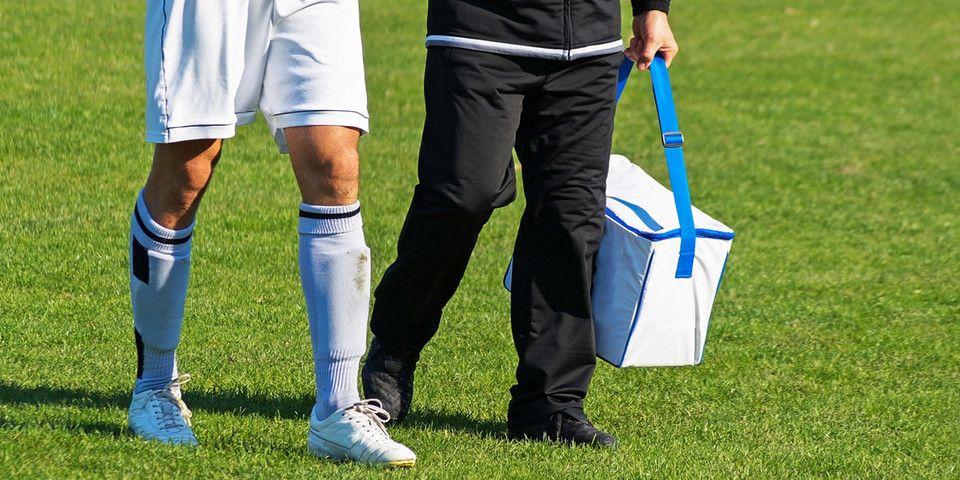Don’t Wait Until It’s Too Late! Learn When to See a Specialist
For many people, maintaining a healthy lifestyle doesn’t require much effort. If your body is functioning properly, why worry about the possibility of developing health conditions? At Rothman Orthopaedic Institute, we of course don’t want you to worry unnecessarily, but we do want to tell potential patients about the various parts of their musculoskeletal system and how they all function and cooperate to keep you well. Specifically, we can help you recognize the signs of a shoulder injury and know exactly when to see a shoulder specialist in White Plains.
Good news, White Plains residents and other surrounding communities—Rothman Orthopaedic Institute is heading to New York! If you live in a nearby area and are concerned about your shoulders, or simply interested in learning how to prevent a shoulder injury from developing, the following information could be crucial for you.
Six Common Conditions Treated by a Shoulder Specialist in White Plains
-
Throwing injuries. A repetitive overhead throwing motion can wear out an athlete’s shoulder. The most common throwing injury is glenohumeral internal rotation deficit (GIRD,) which is categorized as the loss of internal rotation from scarring of the joint capsule or a previous shoulder condition. Other throwing injuries include bursitis, tendonitis, labral tears and rotator cuff tears.
-
Shoulder impingement syndrome. This condition, also called rotator cuff tendonitis, forms when the tendons of the rotator cuff are compressed between the head of the humerus bone and a part of the shoulder blade. As a result, the tendons become painfully inflamed and may, eventually, weaken, leading to a more severe shoulder injury.
-
Broken collarbone. A break or fracture of this type occurs in the clavicle, the bone in the upper chest connecting the breastbone to the shoulder blade. More often than not, most cases are caused by an incident of trauma, such as falling, impact on the shoulder, or an automobile accident.
-
Shoulder arthritis. Degenerative joint disease, otherwise called osteoarthritis, is the most common type of arthritis found in the shoulder. This condition develops when the protective cartilage in the shoulder joint wears away, causing the affected patient pain and swelling in the area. Another possible type is rheumatoid arthritis, which causes inflammation on and around the lining of a joint.
-
Shoulder dislocation. Your shoulder is the most mobile joint in your body. Unfortunately, this means the shoulder can easily dislocate. In a dislocation, the head of the humerus (upper arm bone) has either partially or completely separated from the glenoid (its socket.) This injury may cause swelling, numbness, weakness, and visible deformity. It may also cause injury to the stabilizing structures of the shoulder joint, including the capsule, labrum and rotator cuff. As treatment, a shoulder specialist will perform closed reduction to reconnect the humerus to the socket.
-
Rotator cuff tears. Rotator cuff injuries often begin with tendonitis. However, in certain cases the tendonitis can progress to the point of the tendon becoming frayed or torn. The tear can be partial thickness, only going part way through the tendon, or full thickness, extending all the way through the tendon and detaching the tendon from the bone.
How to Implement Shoulder Injury Prevention
Even if you do not have one of the above shoulder conditions, prevention methods can protect you from future harm, wear-and-tear, or painful symptoms that can emerge over time. If you are an athlete or someone who uses your arms or shoulders frequently throughout the day, the tips below may be especially useful. Here are some preventative measures you can start taking today:
-
Apply heat to your shoulder muscles before exercising, especially if they are sore from prior activities.
-
Implement muscle strengthening exercises into your workout routine.
-
Work on developing better posture if you tend to slouch when you sit or stand.
-
Take other health measures, such as eating a balanced diet or doing relaxation activities when you feel stressed out.
The more you know about your shoulders and how to protect them, the easier it will be to maintain long-term shoulder health. For more information, or to schedule an appointment with a shoulder specialist in White Plains, please visit us here or contact us at 1-800-321-9999.
Related Specialties
Related Physicians
Related Treatments
- Closed Reduction (Shoulder)
- Little League Shoulder Treatment
- Non-operative Shoulder Instability Treatment
- Non-operative Shoulder Separation Treatment
- Shoulder Arthritis Surgeries
- Shoulder Arthritis Treatment
- Shoulder Arthroscopy
- Shoulder Impingement Syndrome Treatment
- Shoulder Instability Surgery
- Shoulder Replacement Surgery
- Shoulder Separation Surgery
Related Services
Related Programs
-

Athletic Training- Sport Medicine Outreach
Our Field Athletic Trainers provide direct sports medicine care to youth, high school, college and professional athletes. Rothman AT’s provide athletic training services throughout Southeastern PA and NJ to interscholastic high schools, colleges, as well as tournaments and special events.Read More -

Overhead Throwing Program
Whether it’s throwing a javelin or pitching a baseball, the overhead or throwing athlete is exposed to tremendous forces during overhead sports.Read More -

Women’s Sports Medicine Program
The Women’s Sports Medicine Program at the Rothman Orthopaedic Institute is the first of its kind in the Philadelphia metro area and one of only several such programs specializing in the comprehensive care of the female athlete in the country.Read More





